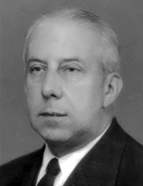

There was also no doubt that the Charter , given by a usurper, lacked legitimacy. There was no doubt that legitimacy and usurpation divided the Portuguese, created insurmountable barriers between them , and were leading them towards civil war. It should be noted that a little over a hundred years had passed since this confrontation and the ideological assumptions that had shaped it were still very much present in the author ’ s way of thinking , which underpinned his choice to support royalty as the only sovereign power.
He also expressed the same convictions and ideas when he responded, shortly afterwards, in A Voz [The Voice] to the criticism published anonymously in the newspaper Novidades [Novelties] of an article of his entitled ‘ Politique d’abord’ [Politics first] . Defending the primacy of political restoration over social reforms, he complemented this with a manifest exaltation of pure monarchy in order to realise it. To achieve this, he returned to his discourse on sovereign power. He followed the doctrine of St Thomas regarding the divine origin of power and its mediated ‘communication’ to the ruler, and hence the superiority of the monarchical regime, considered not only ‘the best and best organised’ but also the most enduring (‘Resposta à letra’ [Literal answer] , pp. 35 and 31, resp.). For this reason, he said, ‘outside the monarchy , there is no salvation’ ( Idem , p. 17) since only the single power and the dynasty, synonymous with continuity, guaranteed political stability and peace. The same was not true of the republic. Based on the principle of popular sovereignty, it was at the mercy of suffrage and, consequently, of party manoeuvres that weakened it, curtailing the guarantee of freedoms and, with it, the possibility of social transformation. Hence , the ‘republic was instability by definition’ ( Idem , p. 70), prepared, moreover, by the constitutional monarchy that had first enshrined it in Portugal, and which was , therefore , no more than a transitional regime. The same was true of the Estado Novo [New State] at the time due to the ambiguity and vagueness of the sovereignty issue.
This work is financed by national funds through FCT - Foundation for Science and Technology, I.P, in the scope of the projects UIDB/04311/2020 and UIDP/04311/2020.
